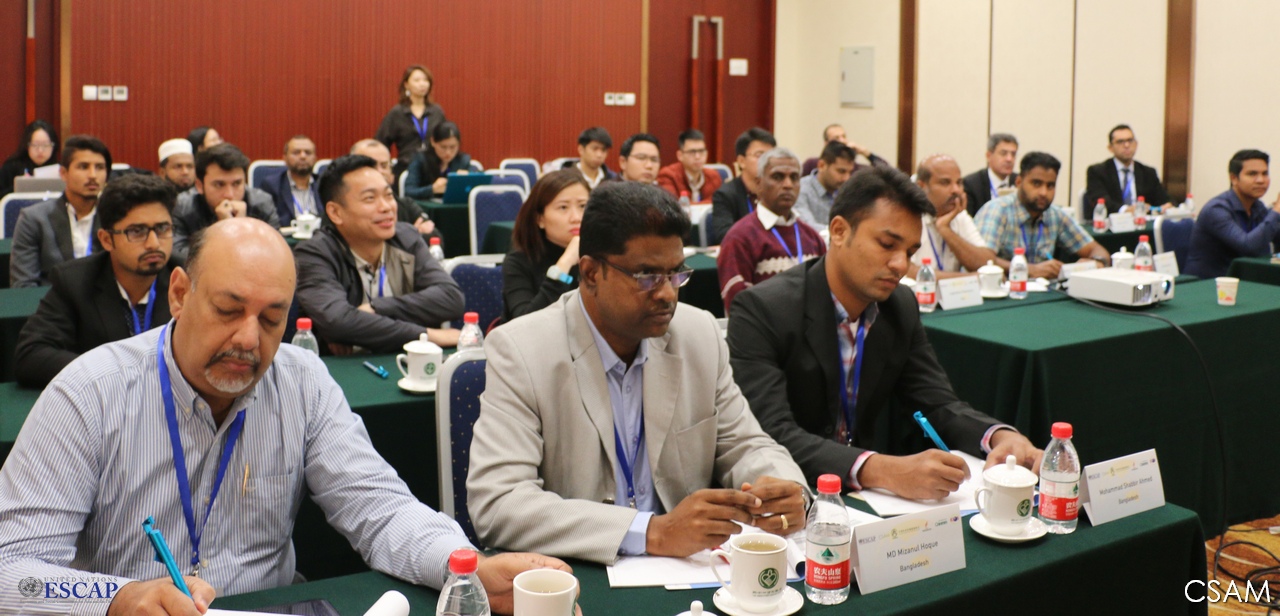4th ReCAMA Training and Study Tour for Agricultural Machinery Manufacturers and Distributors

The 4th ReCAMA Training and Study Tour for Agricultural Machinery Manufacturers and Distributors for promoting sustainable trade and investment was successfully convoked on 16-28 October 2018 in China.
The Training and Study Tour was co-organized by the Centre for Sustainable Agricultural Mechanization of ESCAP and the Centre of International Cooperation Service, Ministry of Agriculture and Rural Affairs of China (CICOS) with support of China Agricultural Machinery Distribution Association (CAMDA), China Agricultural Mechanization Association (CAMA), and China Association of Agricultural Machinery Manufacturers (CAAMM).
The Training and Study Tour targeted 36 participants from 12 countries, namely Bangladesh, Cambodia, India, Indonesia, Malaysia, Nepal, Pakistan, Philippines, Thailand, Turkey, Sri Lanka, and Vietnam. This training programme aimed to strengthen the capability of agricultural machinery associations at the national level, facilitate knowledge-enriching sharing and exchanges between member countries, and enhance business connections and partnership among the participants.
The training included not only classroom lectures, but also visits arranged to allow on-site learning at corporations such as Beijing Unistrong Science & Technology Co. Ltd., Dayu Water-Saving Group Co. Ltd., Beijing Kingpeng International Hi-Tech Corporation, Shandong Wuzheng Group Co. Ltd., Lovol Heavy Industry Co. Ltd., Anyang Quanfeng Aviation Plant Protection Technology Co. Ltd., as well as at the China International Agricultural Machinery Exhibition 2018.
Participants also attended the 6th Regional Forum on Sustainable Agricultural Mechanization in Asia and the Pacific held on 25 October 2018 in Wuhan, China, which focused on promoting an ‘Enabling Environment for the Private Sector’. Through effective communication during the events, mutual understanding on sustainable agricultural mechanization was established in terms of knowledge transfer, technology exchange, and exploration of opportunities for cooperation. Thus, synergistic linkages between member countries were substantively enhanced to a greater level.
